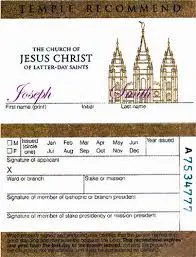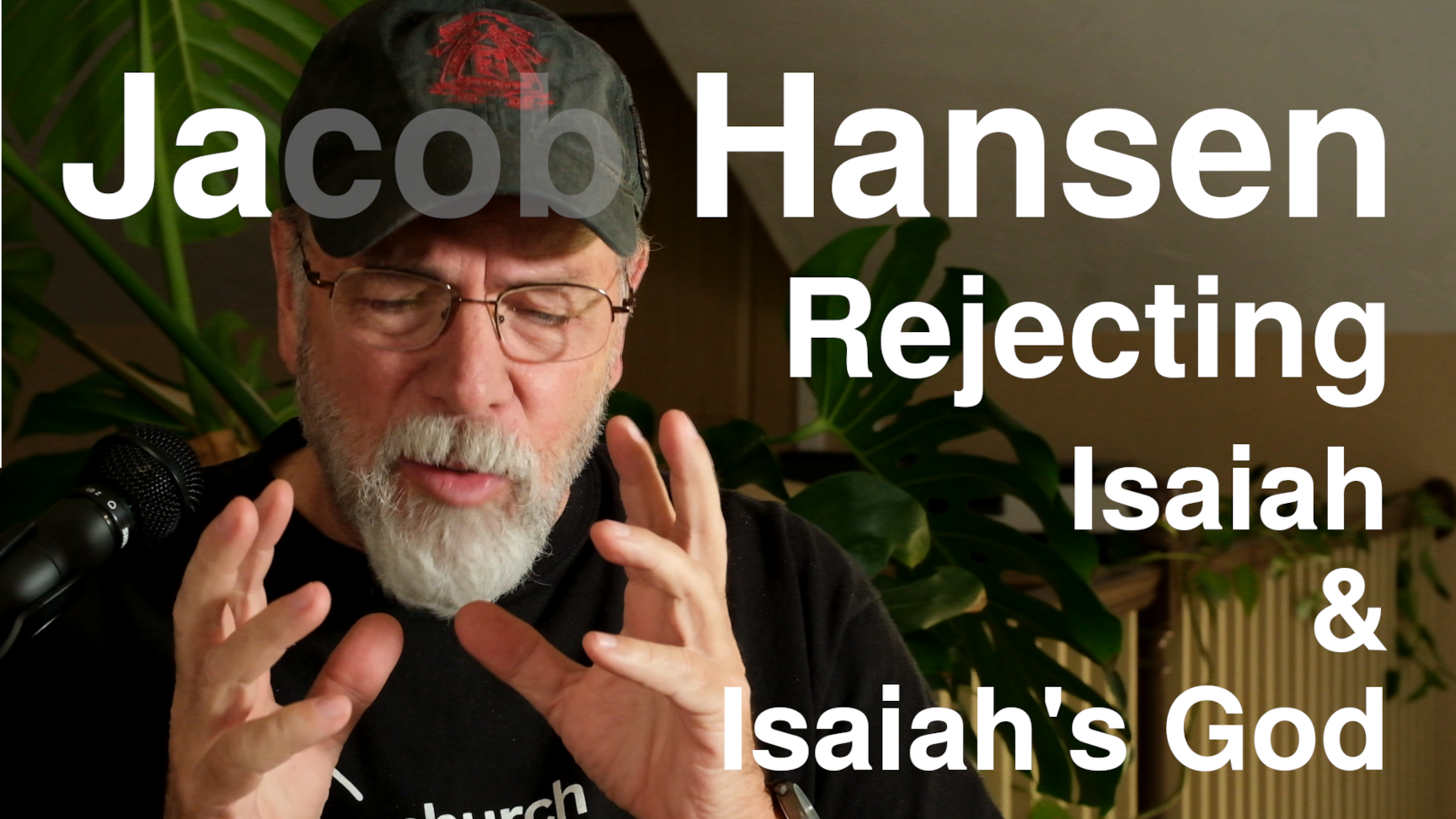You must keep the commandments. Can any but Jesus do it? Mormon scripture says yes. The Bible presents a strikingly different reality.
Table of Contents
Mormon Theology
One of the best-known and most loved quotes from the Book of Mormon shapes theology and impacts the daily lives of the Mormon people. It speaks of the Book of Mormon prophet, Nephi, and his dedication and absolute ability to keep the commandments of God. In sixty years of zealous Mormonism, I never once had occasion to doubt the validity of this passage. Looking back, I wonder why.
Perfect Commandment Keeping
Book of Mormon
And it came to pass that I, Nephi, said unto my father: I will go and do the things which the Lord hath commanded, for I know that the Lord giveth no commandments unto the children of men, save he shall prepare a way for them that they may accomplish the thing which he commandeth them.
1 Nephi 3:7, emphasis added
Millions of Mormon children commit this passage to memory by singing Nephi’s Courage. My five children learned this song. Decades later, I suspect each one can sing every word. I urge you to take a moment to listen, at least to the first verse and chorus. As you listen, pay close attention to what the children are being taught.
The doctrinal claim is abundantly clear. The Mormon god has prepared a way for every man, woman, and child to keep the commandments, each and every one of them. And since the way is prepared by their Mormon god, what level of commandment keeping is required?
For the Lord God hath said that: Inasmuch as ye shall keep my commandments ye shall prosper in the land; and inasmuch as ye will not keep my commandments ye shall be cut off from my presence.
2 Nephi 4:4, emphasis added
Does the requirement to “keep the commandments” presume the keeping of some commandments, the keeping of the most important commandments, or does it assume the keeping of all commandments? The answer is clearly and repeatedly repeated in canonized Mormon scripture.
In near word-for-word fashion, this message of 2 Nephi 4:4 is found throughout the Book of Mormon, including 1 Nephi 2:20-21, 1 Nephi 4:14, 2 Nephi 1:1, 2 Nephi 9:20, Jarom 1:9, Omni 1:6, Mosiah 1:7, Mosiah 2:22, Alma 9:13, Alma 36:1, Alma 36:30, Alma 38:1, and Alma 38:15-16. I don’t know if this list is exhaustive, but I believe is sufficient to establish the Mormon teaching that “the Lord giveth no commandments unto the children of men, save he shall prepare a way for them that they may accomplish the thing which he commandeth them.” Because the Mormon god has provided a way for every person to keep every commandment, perfect commandment keeping is the established standard.
For we labor diligently to write, to persuade our children, and also our brethren, to believe in Christ, and to be reconciled to God; for we know that it is by grace that we are saved, after all we can do.
2 Nephi 25:23, emphasis added
This raises an important question. For every Mormon, what is all they can do? Mormon scripture insists that the way is prepared for each person to perfectly observe every commandment. Therefore, all they can do means they can do it all. Why? Because a way for them has been divinely prepared.

Questions for Mormon Bishops
Mormon scripture insists that the Mormon god has prepared a way that all people may perfectly keep the commandments.
- Bishop, are you aware of any church member who faithfully keeps all the commandments?
- Bishop, are you keeping every commandment?
- Bishop, if you are not keeping all the commandments, how will you not be cut off from the presence of the Lord, as stated more than a dozen times in the Book of Mormon?
Doctrine and Covenants
Years after Joseph Smith published the Book of Mormon, the Doctrine and Covenants, was added to canonized Mormon scripture. In keeping with the standard to perfectly keep the commandments, we read:
31For I the Lord cannot look upon sin with the least degree of allowance; 32Nevertheless, he that repents and does the commandments of the Lord shall be forgiven;
Doctrine & Covenants 1: 31-32, emphasis added
Keep my commandments continually, and a crown of righteousness thou shalt receive. And except thou do this, where I am you cannot come.
Doctrine & Covenants 25:15, emphasis added

Questions for Mormon Bishops
Doctrine & Covenants 25:15 requires all people to keep the commandments continually or lose an eternity with God.
- Bishop, who but Jesus Christ has done this?
- Bishop, who but Jesus Christ can do this?
- Bishop, why do you teach that the standard of Doctrine & Covenants 25:15 is possible for men?
Modern Mormon Prophets
By keeping his commandments, we qualify for his blessings. “There is a law,” we are told, “irrevocably decreed in heaven before the foundations of this world, upon which all blessings are predicated—And when we obtain any blessing from God, it is by obedience to that law upon which it is predicated” (D&C 130:20–21)
Dallin H. Oaks, The Blessing of Commandments, Brigham Young University, September 10, 1974
According to the Mormon apostle, Dallin H. Oaks, and this passage of Momon scripture, God relates to us according to some sort of heavenly barter system. Each time you receive a blessing, it is because some angelic bookkeeper noticed your admirable commandment keeping and sent a blessing, next-day shipping I presume. If more good works result in more blessings, evil lifestyles must result in the absence of blessings. A casual observation clearly shows that many with abundant material blessings are the most wicked of men. God’s word rejects this as false doctrine.
That ye may be the children of your Father which is in heaven: for he maketh his sun to rise on the evil and on the good, and sendeth rain on the just and on the unjust.
Matthew 5:45, KJV
Additionally, we have this,
He allows you to access His power as you keep His commandments, eagerly, earnestly, and exactly. It is that simple and certain.
Russell Nelson, Decisions for Eternity, LDS General Conference, 6 Oct 2013, emphasis added
Jesus assured us that earning salvation by exact commandment keeping is impossible.1 However, a Momon prophet says it is simple and certain. We must now decide which of these two is worthy of our trust. Who will you follow?
My Personal Attempt to Achieve the Unachievable
As a rebellious teenager, I lived outside the lines of faithful Mormonism and failed to keep the commandments. I was not doing all I could do and, soon enough, faced a Mormon disciplinary council. Church leaders, with good intentions, presented me with a book, The Miracle of Forgiveness, by Spencer W. Kimball. Kimball was the 12th Mormon prophet. He served in that position from December 30, 1973, to November 5, 1985. I was instructed to read his book and apply its teachings to my life.
I found the demands of the book to be impossibly demanding and beyond my reach. I had always been taught that my Mormon god provided a way to perfectly keep the commandments. Nevertheless, I knew my efforts to do all I could do had and would always fall short of the Mormon expectation to keep the commandments.
At the height of my disillusionment, I turned a page of The Miracle of Forgiveness and read:
To “try” is weak. To “do the best I can” is not strong. We must always do better than we can. This is true in every walk of life.
Spencer W. Kimball, Miracle of Forgiveness, p 165, emphase added
Better than I can? What was I supposed to do with that? I had the requirement to perfectly keep the commandments because my Mormon god had prepared a way for me. Add to that “all I could do,” which was again perfect commandment keeping because the Mormon god prepared a way. With the stroke of a pen, a man I recognized as a prophet of god declared that even this was not enough. Somehow, I was required to do better than I can.
I was overwhelmed by the impossibility of the demands set before me. All I could do was fake my repentance and falsely present myself as a man of perfect performance. This I did until my Mormon leaders fell for my lies and false professions. What else could I do?
Biblical Theology
The Rich Young Ruler
The story of the Rich Young Ruler faithfully counters Mormon theology with the simple gospel of grace. This story is told in the accounts of Matthew, Mark, and Luke. For this discussion, I will focus on the account in the gospel according to Matthew.
This young man asked, “what good thing shall I do, that I may have eternal life?“2 It is amazing to me that Jesus gave his answer in two parts. The first part partially establishes Mormon theology as a valid way by which a man may inherit eternal life.
Jesus answered him, “but if thou wilt enter into life, keep the commandments.“3 When asked about which of the commandments needed to be kept, Jesus rehearsed a partial list of the ten commandments. In reply, the young man said, “All these things have I kept from my youth up: …”4 But did he keep all these things? Together, we will examine the evidence. This man was obviously familiar with Jesus and His teachings, so we will examine his claim in this light.
He would have known that those who are unjustly angry with a brother will be treated as a murderer. Who among us is not guilty of this thing?
He would have known that it is adultery to look on a woman with lust. Because he was a young man, I think we can safely make assumptions regarding the sensual working of his flesh.
He would have known the requirement to love his neighbor as himself. Being rich, it is safe to assume that he spent his days lavishly clothed, royally housed, and abundantly fed. Among his neighbors, there were beggars, blind, lame, halt, ill, and perhaps a widow who possessed only a single mite. They spent their days poorly clothed, poorly fed, poorly housed, and poorly regarded in the city. Was his care for them equal to his care for himself?
The evidence is clear. Despite his obvious failings, he libelously declared, all these things have I kept from my youth up: what lack I yet? With that statement, the Rich Young Ruler shattered one more commandment. Without a spark of recognition or shame, he lied like a politician. And, all liars shall have their part in the lake which burneth with fire and brimstone: which is the second death.5
A Modern Equivalent
I once visited a woman who had been among our closest friends when we were Mormon. When I questioned her about the rigid demand that she keep the commandments, she said, with no more hesitation than the Rich Yong Ruler, “I keep all the commandments.” Truly, her comment left me shaken, so I asked a clarifying question. She responded matter of factly, “I have reached the age where I am no longer tempted to sin, so yes, I keep the commandments.“
It was tragic that she would answer this way, but not surprising. For most of her adult life, she had gone before high-level Mormon leaders for her annual temple recommend interview. These interviews consist of a series of fifteen questions that must be asked and properly answered. The last question is, “Do you consider yourself worthy to enter the Lord’s house and participate in temple ordinances?”
I have been asked and answered that question on many occasions. Always, I felt uneasy, perhaps much like the Rich Young Ruler. Like him, I ignored the available evidence and declared that I was worthy. I knew better. I, like the Rich Young Ruler and my silly friend, lied like a politician. My lie and hers, however, was worse; we lied in the name of God.

It is not hard to understand why this woman, my friend, professed that she fully kept the commandments. Each time she falsely declared her worthiness before men she believed were called of God, they affirmed her lie. Subsequently, they gave her a temple recommend. This recommend is nothing more than a scrap of paper with a few bits of text scratched in appropriate places. But to the Mormons, it is everything. It is a certificate of temple worthiness. These certificates authoritatively declared that my foolish friend and I were worthy, even if we lied to get them.
Now, here is the rub. The Mormon church taught my friend that she could only reach the highest degree of Mormon heaven by being temple worthy. Like the Rich Young Fool, she lied to get her recommend and earn eternal life, as do all Mormons. The Rich Young Ruler and my friend were under the same destructive delusion. She qualified for heaven because she had a recommend and was disqualified because she lied. On the other hand, if she had told the truth, she would have qualified for heaven for keeping the commandment against bearing false witness, and would have been disqualified because she had no recommend.
And for this cause God shall send them strong delusion, that they should believe a lie:
2 Thessalonians 2:11, KJV

Questions for Mormon Bishops
According to the apostle Paul, we are all unworthy and fall short of the glory of God.
- When you give a temple recommend (worthiness certificate) to an unworthy person, do you strengthen their strong delusion?
- We have all seen temple recommend holders exposed as sexual predators. When you give a temple recommend to a person such as this, do you have discernment or a strong delusion?
- What assurance do you have that the temple recommend holders in your ward are not watching pornography, stealing from an employer, or failing to keep the sabbath day in accordance with church guidelines?
The Rich Young Ruler, my friend, and all the Mormon people perish under the same strong delusion. They each pursue salvation through a system of works righteousness. Even if they admit to not keeping all the commandments, they think they can be good enough to be saved. However, partial commandment keeping does not satisfy the high bar set by Mormon doctrine and Jesus Himself.
If they had been able to live all the commandments continually, they would have met the Mormon standard, except for the part where they must do better than they can. They would have met the requirement of Jesus when He said, “keep the commandments.“6
The Parable of the Pharisee and the Publican
Before we examine this parable, carefully consider the words of Russell Nelson, the current prophet and president of the Mormon church. Much will come into undeniable clarity as we contrast the message of this man with the words of Jesus.
Preparation also includes qualification for a temple recommend. Our Redeemer requires that His temples be protected from desecration. No unclean thing may enter His hallowed house. Yet anyone is welcome who prepares well. Each person applying for a recommend will be interviewed by a judge in Israel — the bishop — and by a stake president. They hold keys of priesthood authority and the responsibility to help us know when our preparation and timing are appropriate to enter the temple. Their interviews will assess several vital issues. They will ask if we obey the law of tithing, if we keep the Word of Wisdom, and if we sustain the authorities of the Church. They will ask if we are honest, if we are morally clean, and if we honor the power of procreation as a sacred trust from our Creator.
Russell M. Nelson, Personal preparation for temple blessings, 31 March 2001, emphasis added
The parable of the Pharisee and the Publican (tax collector) is immediately preceded with a clear bit of context. Jesus was speaking to a group of people who were described as certain which trusted in themselves that they were righteous, and despised others.7
Isn’t it amazing that the Mormon people are interviewed to establish their worthiness? They carry a temple recommend in their purses and wallets as authoritative proof of their righteousness. I use a card to establish myself as a specific class of people who are welcome at Costco. Mormons do the same to establish themselves as a small and unique class of people who are qualified to enter Mormon temples. I pay for my Costco card. Among other things, the Mormon people pay a full 10% tithe to get their card.
According to President Nelson, the temple recommend is evidence that the holder is not unclean. As we have already established, Mormon theology establishes that the Mormon people can and must keep the commandments fully because to simply try, or do your best will never be enough.
In the temple, the Pharisee prayed, God, I thank thee, that I am not as other men are, extortioners, unjust, adulterers, or even as this publican.8 Likewise, the Mormon people claim that they are, in many ways, exalted above the rest of the world. They claim to be the only true church, to have living prophets, to be the only people who hold God’s priesthood, and to have a restored gospel. Above all, they claim to be the church of the Lamb of god and that all others are of the church of the devil.9
The pharisee boasted of all his commandment keeping. He boasted about the tithes he paid and his regular fasting. Non-tithing Mormons are not worthy to be granted a temple recommend. The LDS church established the first Sunday of every month for a twenty-four-hour fast. The church demands its people skip meals and donate the money they would have spent on food. Why is it so much about money?
In ancient Israel, the people went annually to the temple because they were sinners and they knew it. They did not go with the delusion of worthiness. Instead, they went to offer sacrifices to the Lord as an atonement for sins. They went because of their sins, not because they were worthy.
In the parable, the publican smote his breast, confessed his wretchedness, and begged the Lord, be merciful to me a sinner.10 On that day, only the publican returned to his home as a justified man. Jesus clearly said, publicans and the harlots go into the kingdom of God before you.11

Questions for Mormon Bishops
- P
Salvation Can Not be Earned
Therefore by the deeds of the law there shall no flesh be justified in his sight: for by the law is the knowledge of sin.
Romans 3:20, KJV, emphasis added
In a single passage, we see two essential points. These points are declared over and over again in the Bible. However, this single statement is so profound that I will allow it to stand alone with power and authority. The law is nothing more than a list of commandments that a man must follow in order to be saved. Will any man, woman, or child be saved through careful observance of the law? Of course not; they will not because they cannot. Jesus alone lived a perfect life. The rest of us fall short of the glory of God.12 Instead, the law exists so we will have a clear understanding of our own sin. The law exists to show us our failings and brokenness. It exists to point us to Jesus until we finally cry out to Him and Him alone.
After the Rich Young Fool opened his mouth and showed himself to be entangled in his own delusion, Jesus presented another option. This offer is also for my foolish friend who boasted of her perfect commandment keeping. It is lovingly extended to you and me. He said, “If thou wilt be perfect, go and sell that thou hast, and give to the poor, and thou shalt have treasure in heaven: and come and follow me.“13 This is the offer Jesus extends to us all. If we would be saved, we must surrender everything and follow Him.
For me, the cost was high. I lost my standing in our community, some of my God-given freedoms, my friends, and my association with the majority of my family. Some have lost less, and many have lost so much more. The common ingredient is that every soul that inherits eternal life must surrender every worldly thing and lean on, trust in, and follow Jesus.
Then Who Can be Saved?
Having heard all these things, Jesus’ apostles were amazed and no doubt troubled. They asked, “Who then can be saved.“14
But Jesus beheld them, and said unto them, “With men this is impossible; but with God all things are possible.”
Matthew 19:26, KJV, emphasis added
Keeping the commandments will not save you because you cannot keep them perfectly. Your observance of the law, your priesthood, your tithing, your temple recommend, and your temple covenants will not save you. All of these are things of men, and with men, this is impossible.

Questions for Mormon Bishops
Your third Article of Faith states, “We believe that through the Atonement of Christ, all mankind may be saved, by obedience to the laws and ordinances of the Gospel.”
- Bishop, examine all you do for your ward. Do you lead the people after obedience to laws and ordinances, which are the things of men and impossible?
- Instead of focusing on keeping the commandments, do you encourage your ward members to abandon impossible works and lean on Jesus who makes all things possible?
8For by grace are ye saved through faith; and that not of yourselves: it is the gift of God: 9Not of works, lest any man should boast.
Ephesians 2:8-9, KJV
With God and only with God, all things are possible!




Leave a Reply